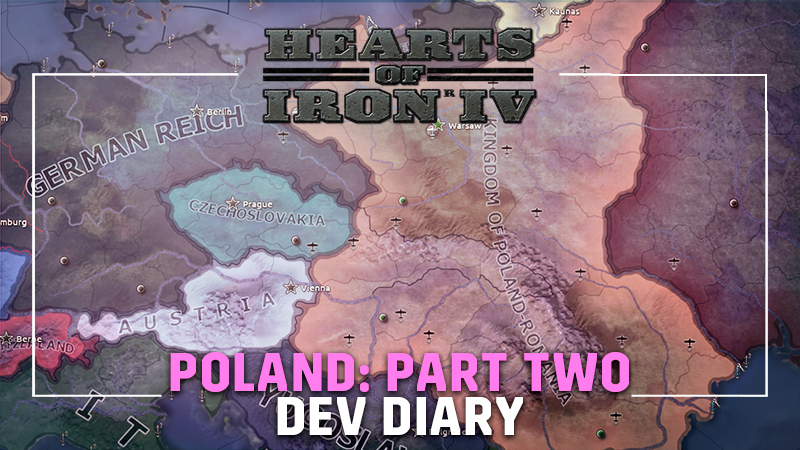
Hello folks and welcome back to the Poland dev-diary extravaganza! This week, I am going to continue covering the changes coming to Poland in 1.11 Barbarossa and the unannounced DLC.Today we’ll be covering the DLC content.
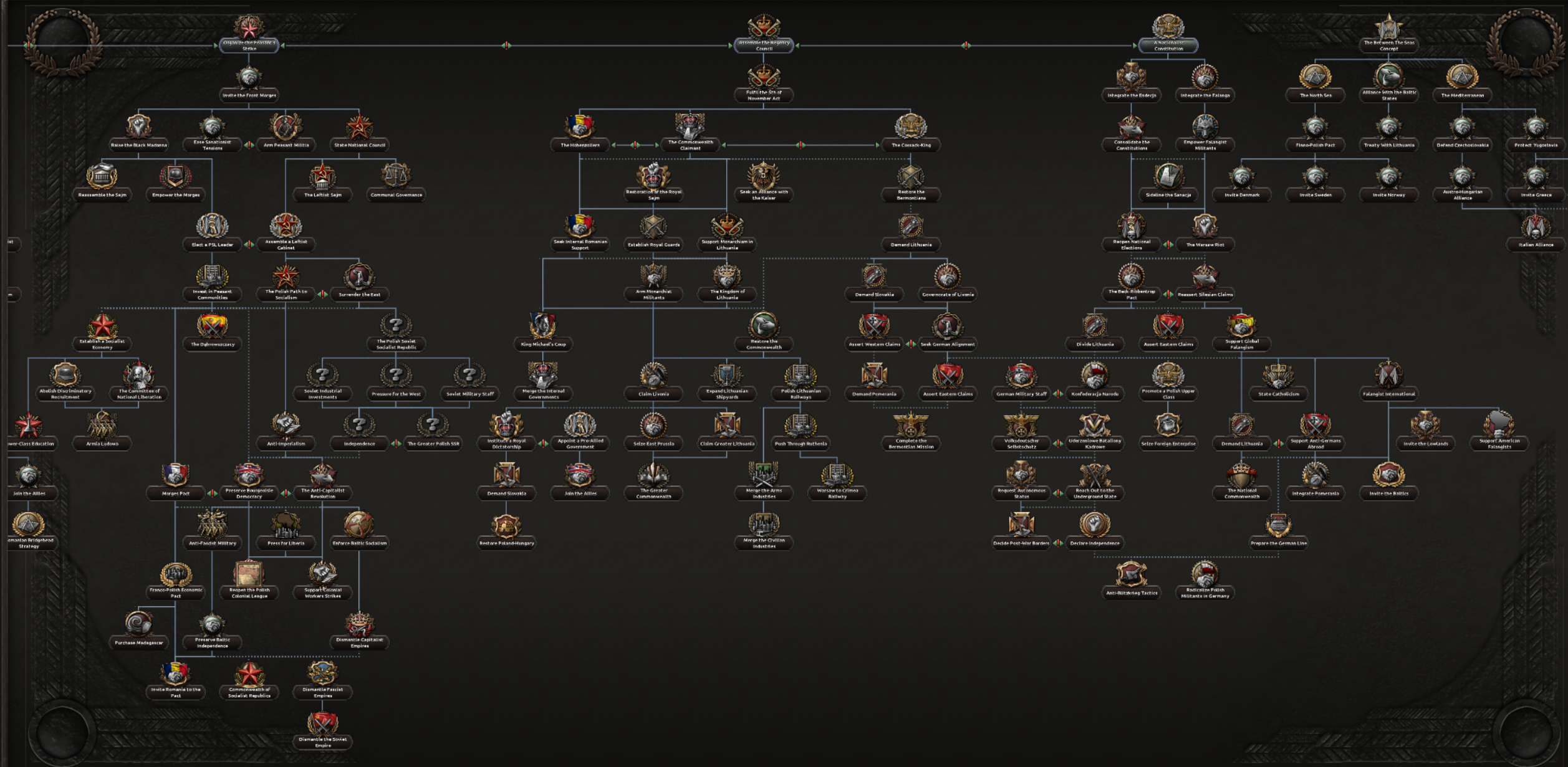
So, I’m going to start here with something a bunch of you predicted last week; you can indeed play as the Peasants’ Strike! A Poland with ambitions to restore democracy or embrace the communist revolution must first build an organized peasant militia from the rabble of disorganized farmers!
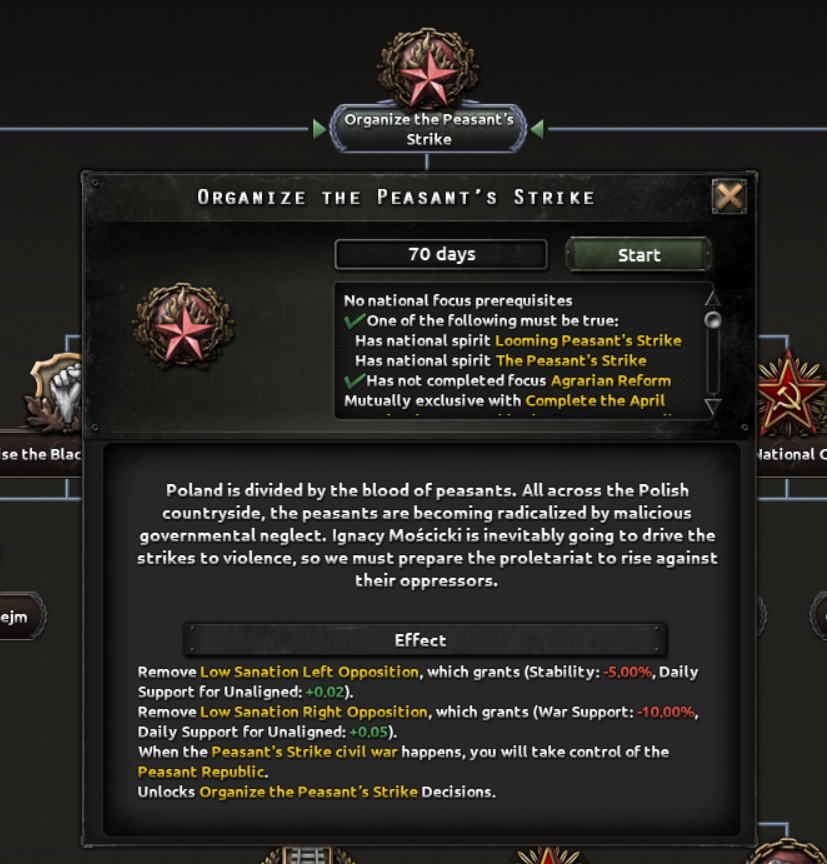
No matter how many or few states join you in the strike, the rebellious state will be in a delicate balancing act between democrats and socialists. Your first step towards revolution is to sway the Front Morges to take up the peasant’s cause, the Morges being an alliance of political parties supported by a select few Polish generals including Sikorski.
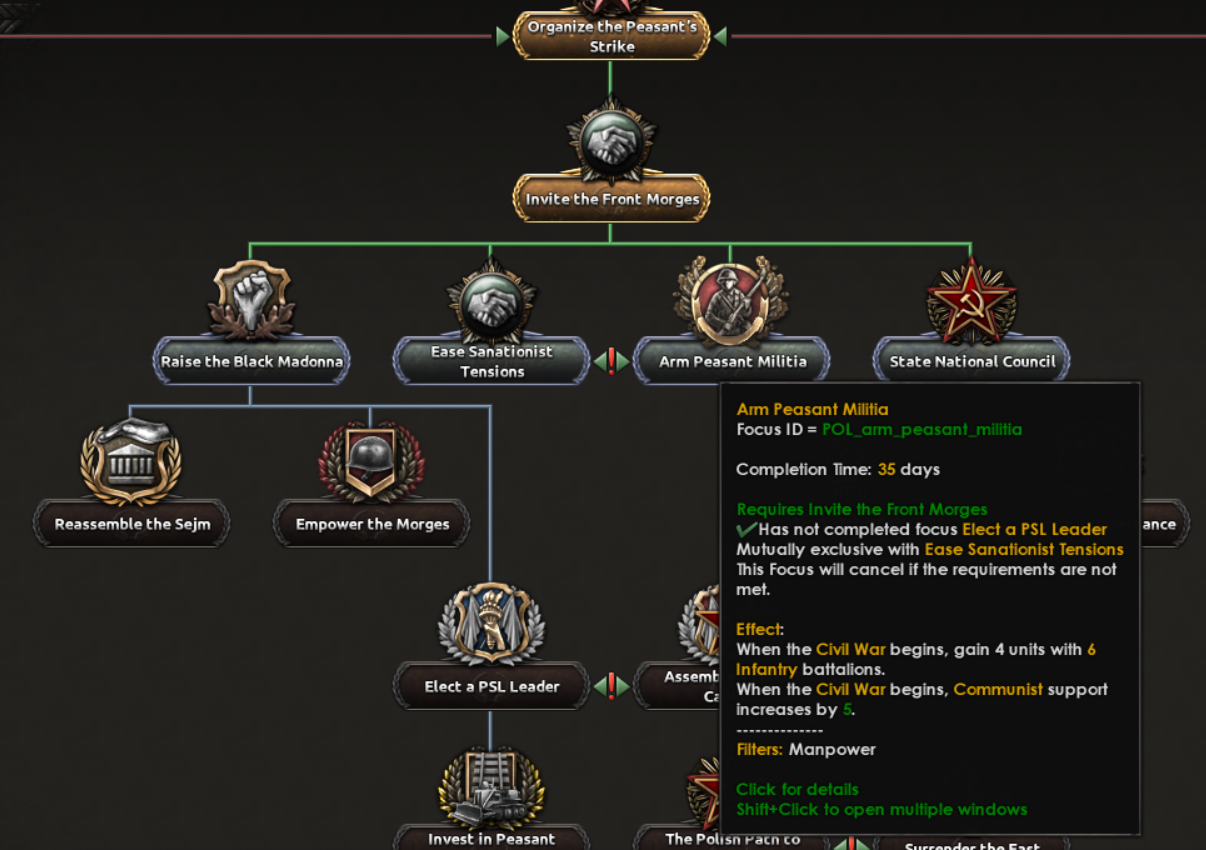
Each focus you do in this initial block will add 5 support to either communism or democracy, with a total of 50% or more being needed for one to assert dominance over the other and take control of the government.
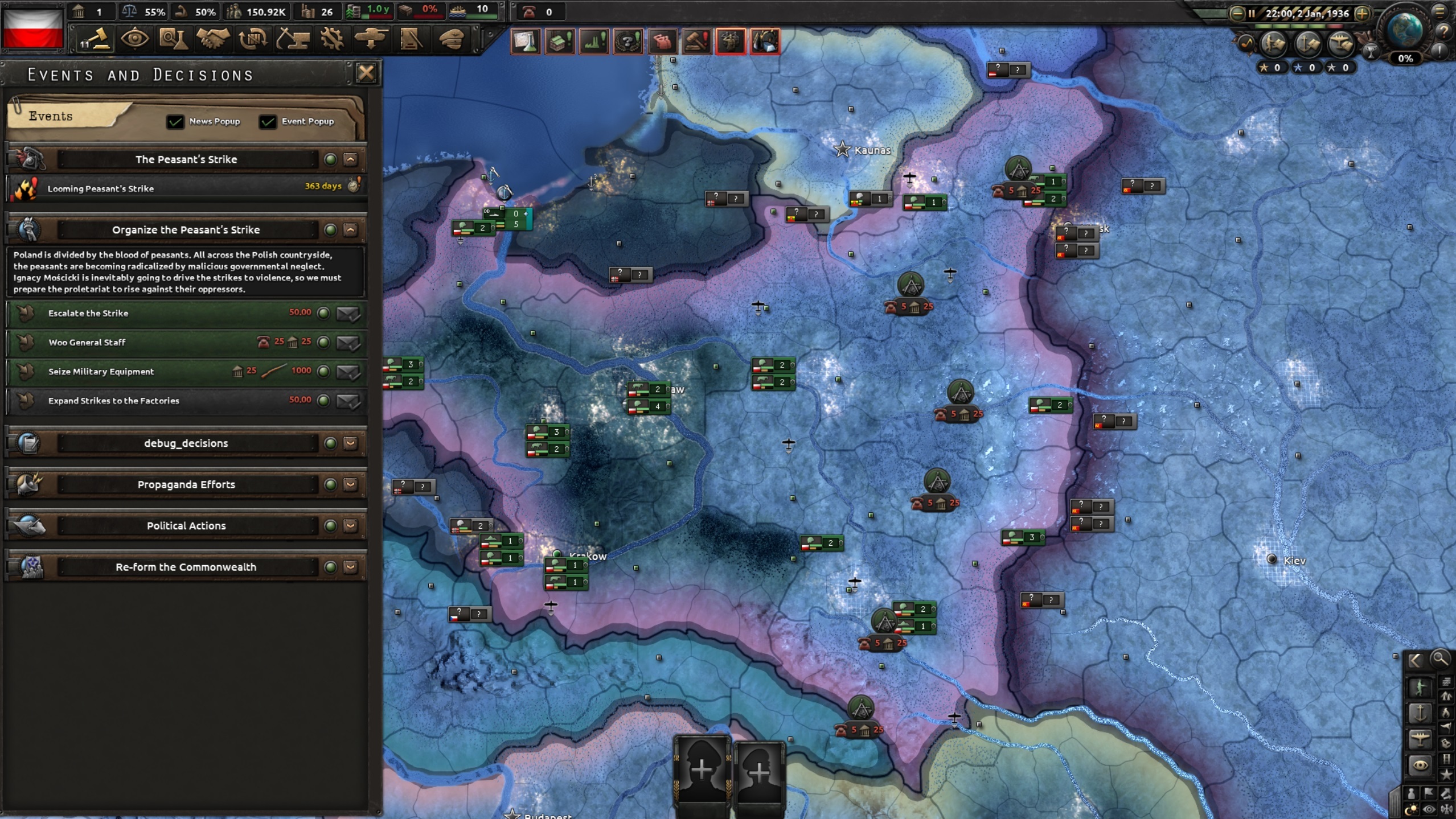
Similar to the Spanish Civil War, the Peasants’ Strike will be on a tight schedule, taking up to a year before the revolution happens. Poland will at first be able to add agricultural states to the strike, but by expanding the strike to factory workers, Poland will also be able to bring states from Poland’s industrial heartland into the revolution.
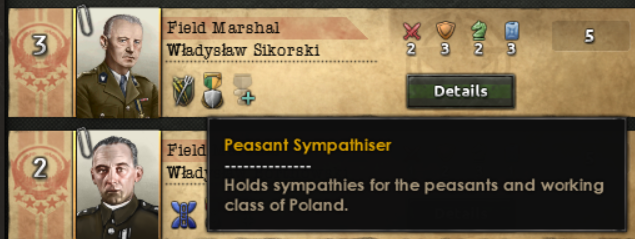
Along with contesting for popular support, gaining military support will be vital for the movement. Using decisions, certain field marshals and generals will be swayed to your cause and gain the “Peasant Sympathiser” trait, ensuring that they will join your side when the war begins.
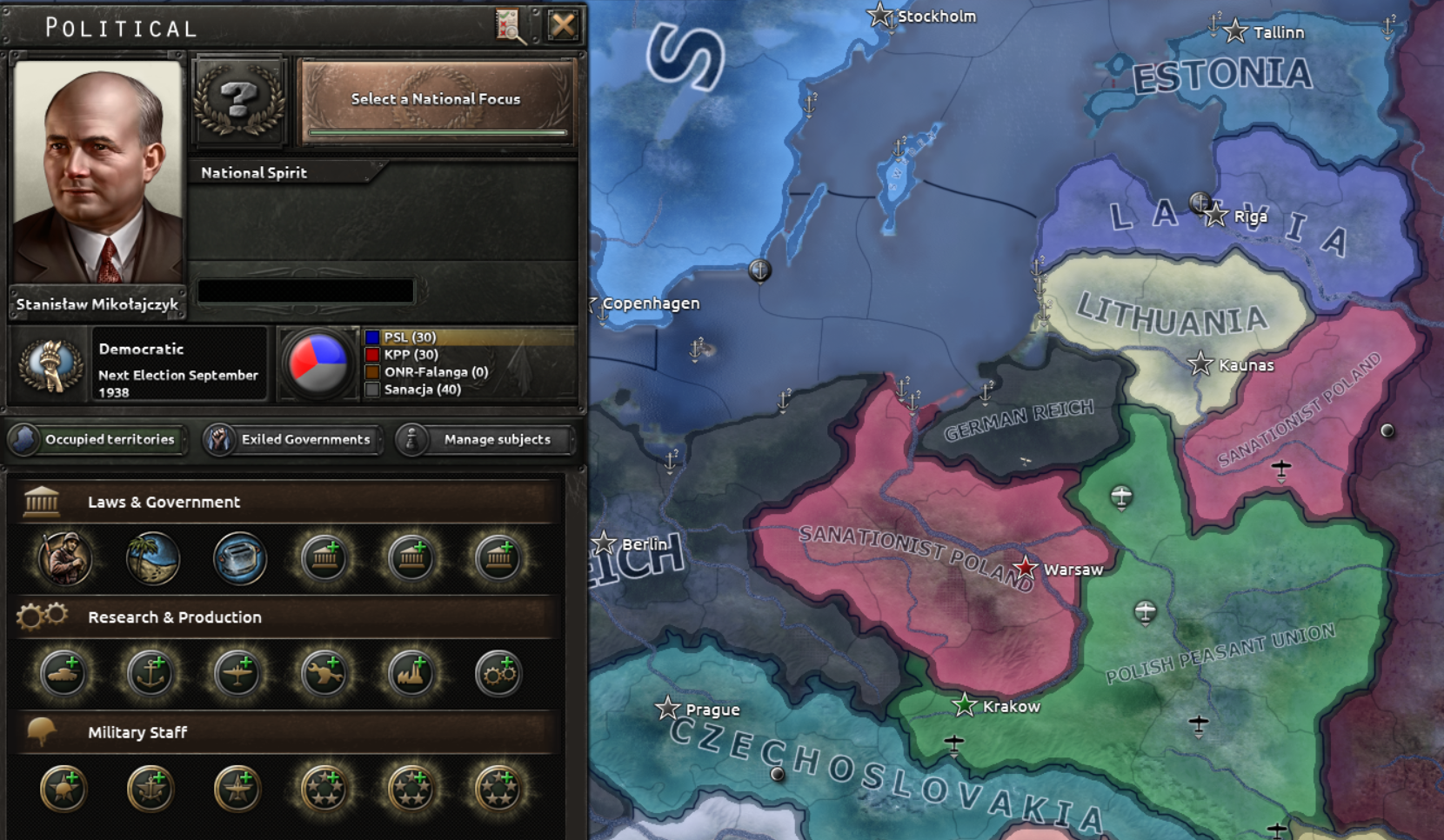
Poland will begin with socialist politician Stanisław Mikołajczyk as country leader, but those who wish to see the return of Wincenty Witos will be able to bring him back to leadership via event.
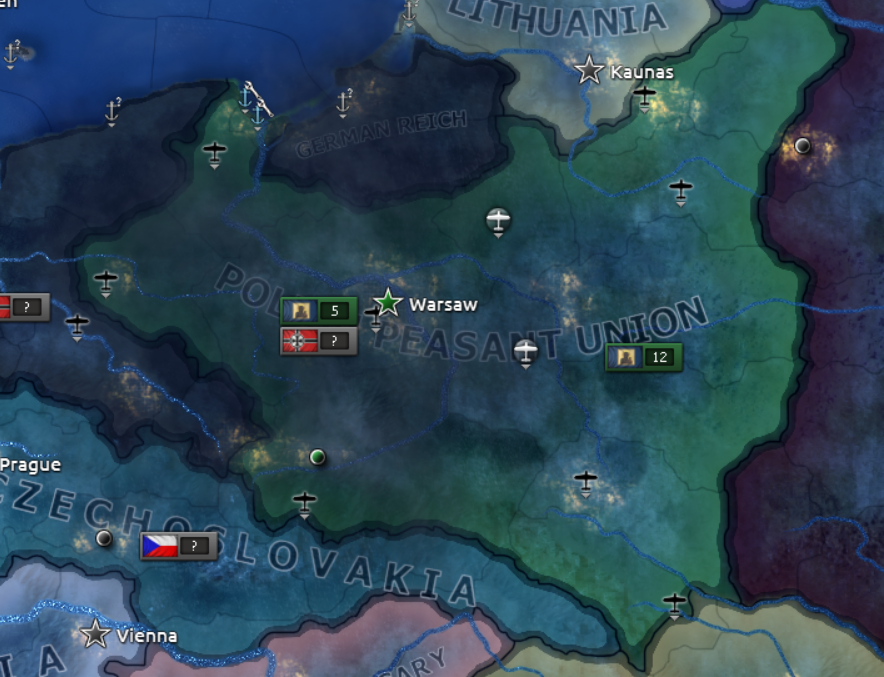
Once the civil war is won, Poland will be in a vulnerable state. Recuperating manpower and resources after a civil war will place Poland in a precarious position, so some concessions and outreach for foreign assistance may be needed.
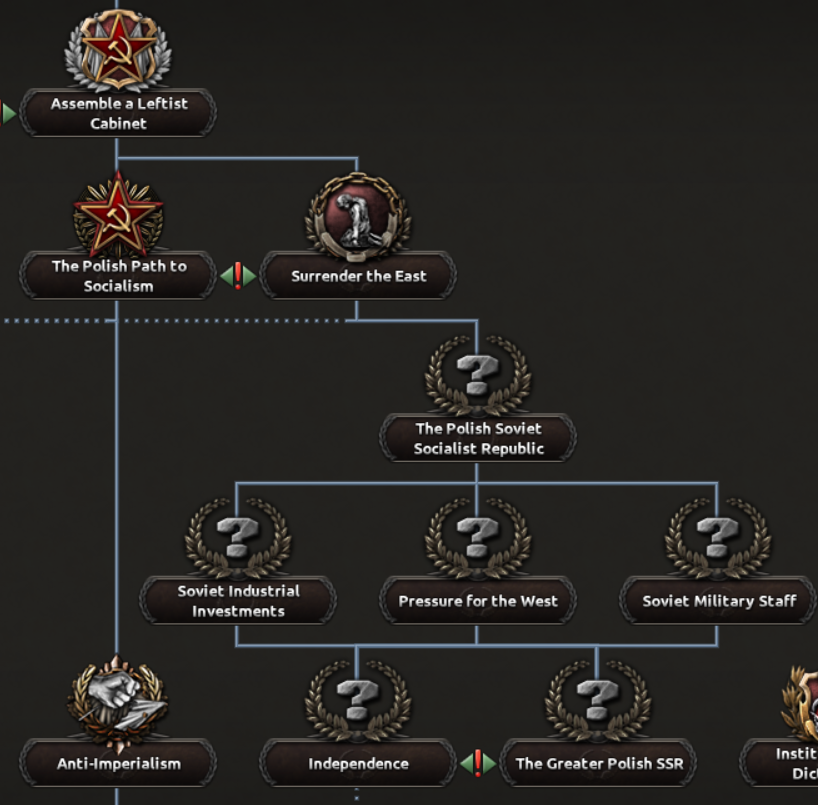
A communist Poland will have two options: they may be bold and elect an anti-Stalinist candidate as Chairman, or they may elect the Soviet-aligned Władysław Gomułka. However, aligning with the Soviets will come at the cost of ceding Eastern Poland, but will unlock a few focuses for dealing with the USSR.
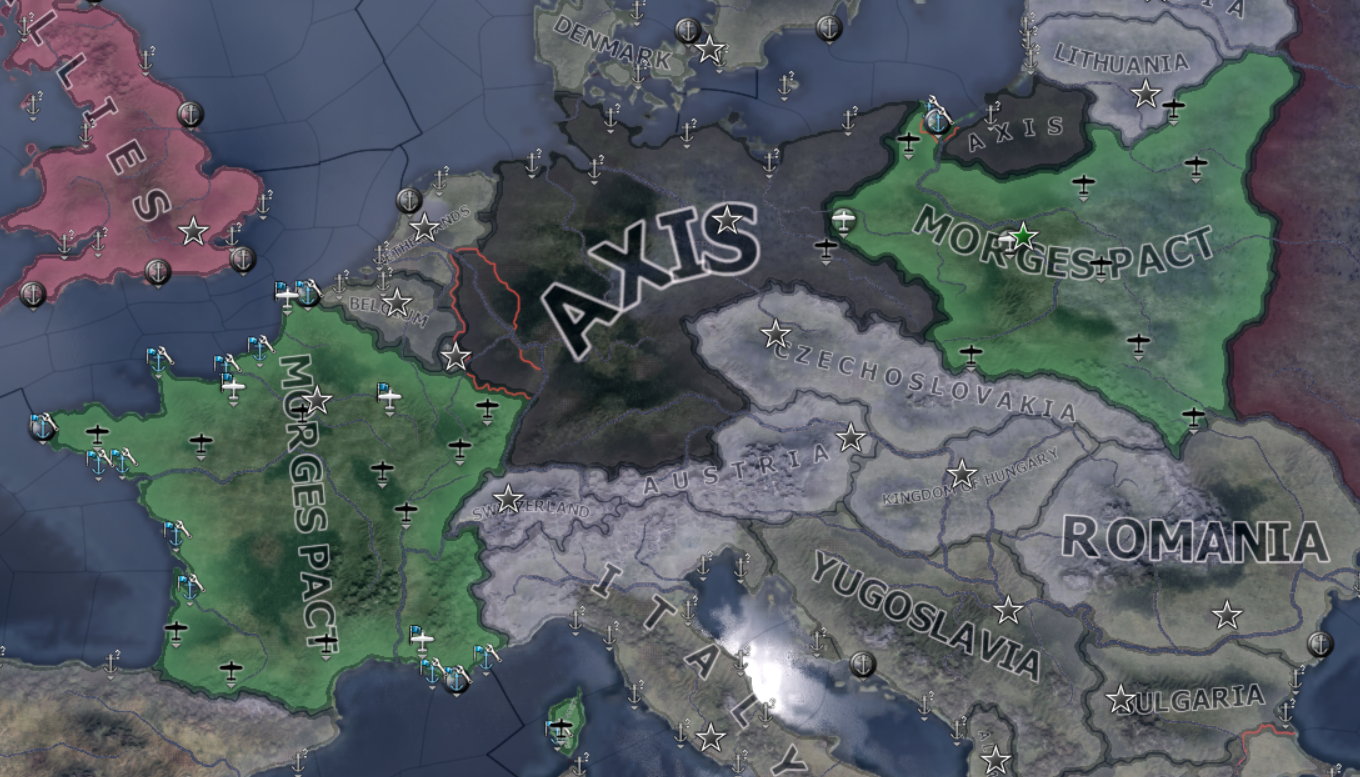
With democracy, Poland may take advantage of the Front Morges’ ambitions for closer relations with the French and create the Morges Pact, a sort-of Poland-led Little Entente. Going down this route will allow Poland access to the Between the Seas branch we talked about last week.

Anti-Soviet communists will be able to denounce both Capitalism and Fascism, diplomatically isolating this people’s republic, but allowing for new expansion options and military bonuses against the empires of this world. In doing so, they will gain a powerful attack and defence bonus against major powers.
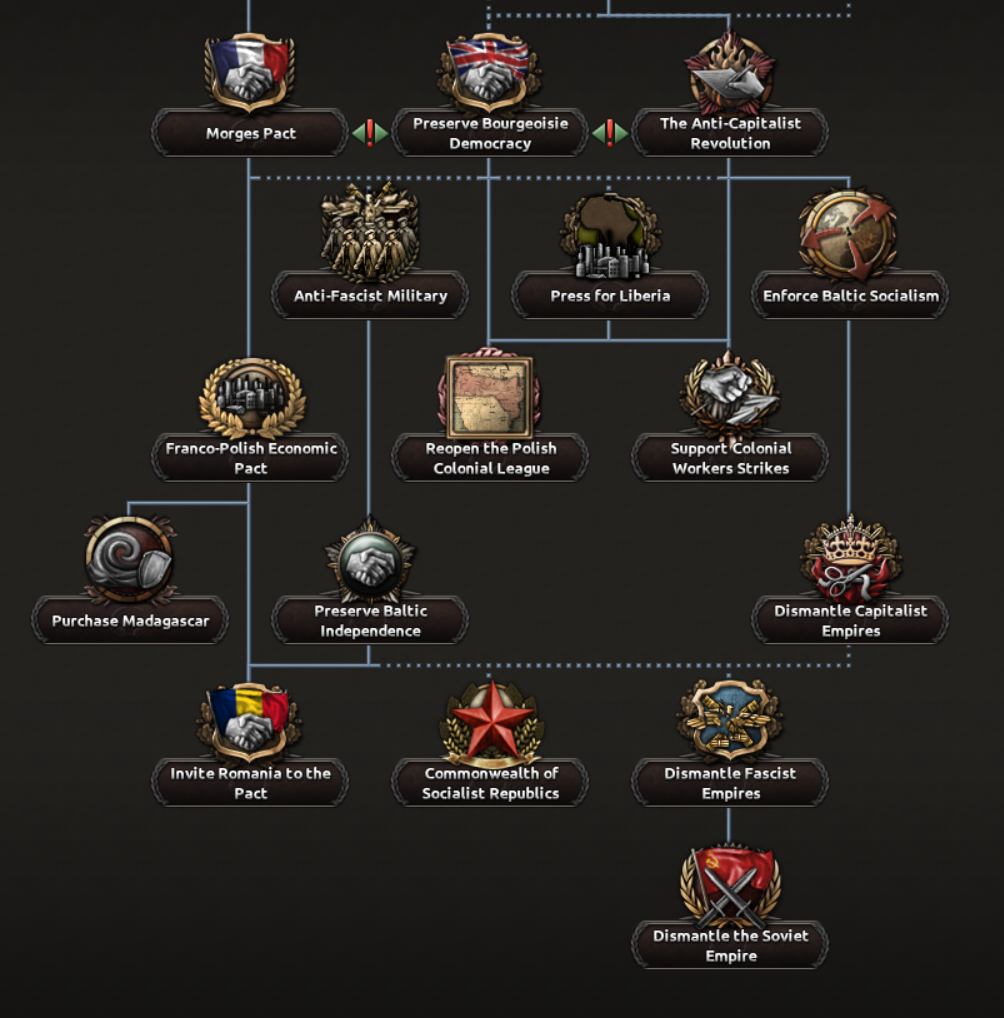
Both democrats and anti-Soviet communists will also be able to declare the destruction of fascism a greater cause than the spread of socialism and align themselves with the British Empire. Doing so will allow Poland to renew her interests in colonialism and attempt to purchase colonies from Allied powers. By officially recognising the Maritime and Colonial League, Poland can purchase Madagascar, Palestine, and more. If any of your purchases are successful, Poland will have somewhere to build their forces in exile, should the front back home fail.
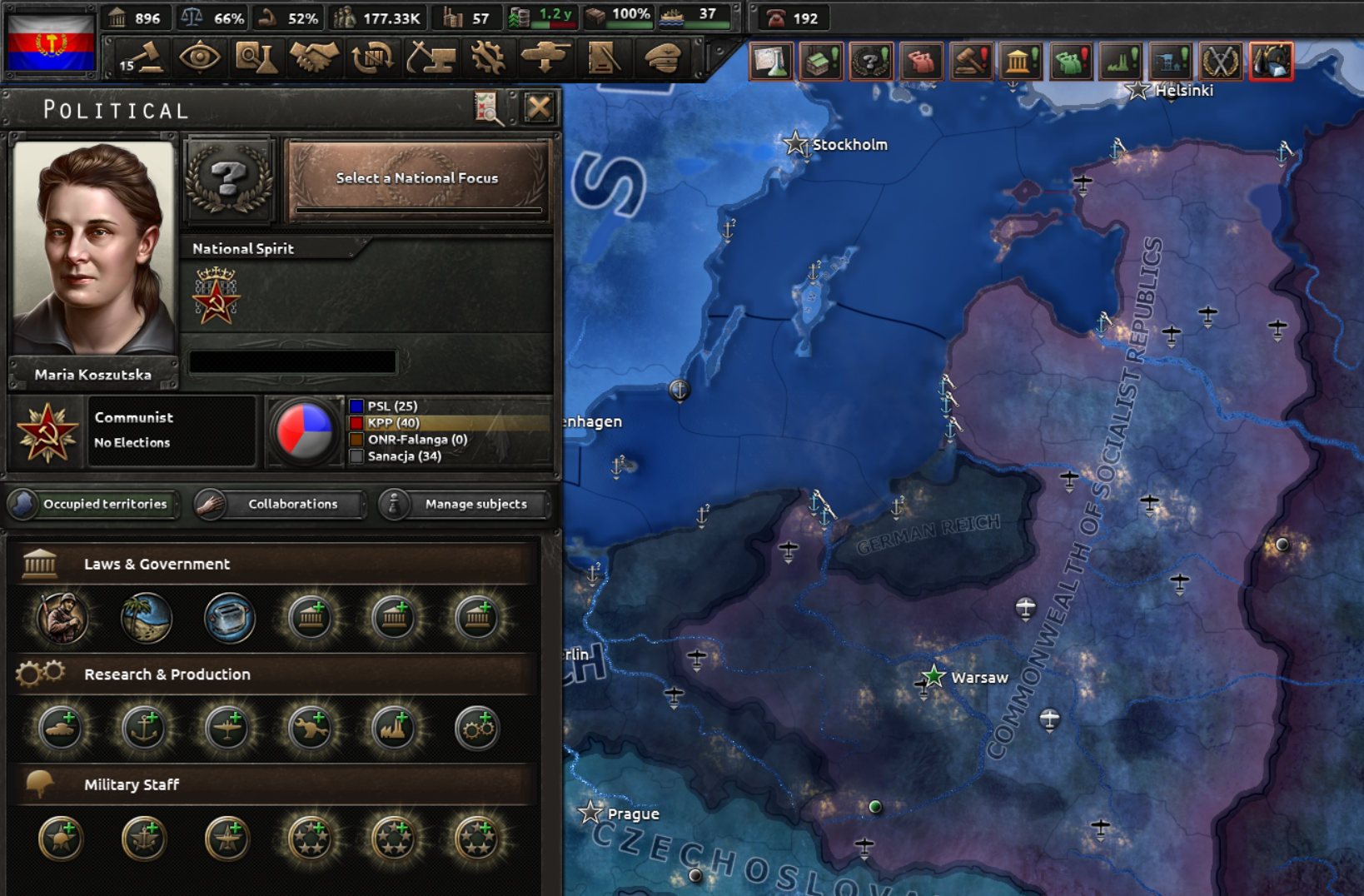
No matter which option you pick, either conquering or building alliances with the Baltic States will allow you to create a new kind of Commonwealth: the Commonwealth of Socialist Republics.
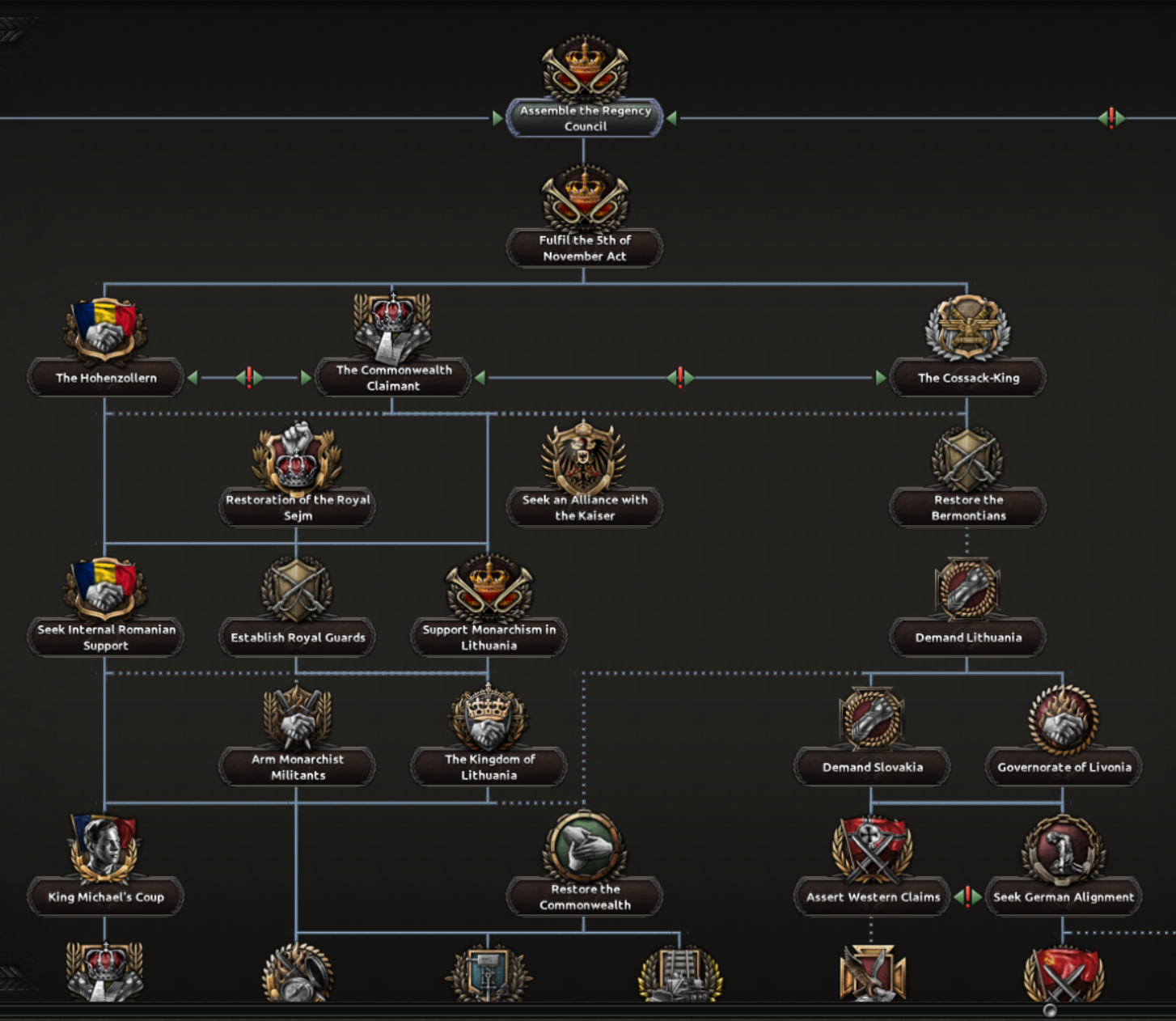
Moving on to the next branch, we have the Regency Council: Poland’s attempt to “restore” the monarchy. The Act of the Fifth of November was the promise of the Central Powers to release a Kingdom of Poland from the occupied territories of the Russian Empire, but the Regency Council of the newly formed Kingdom of Poland failed to crown a King before Józef Piłsudski declared the Second Polish Republic.
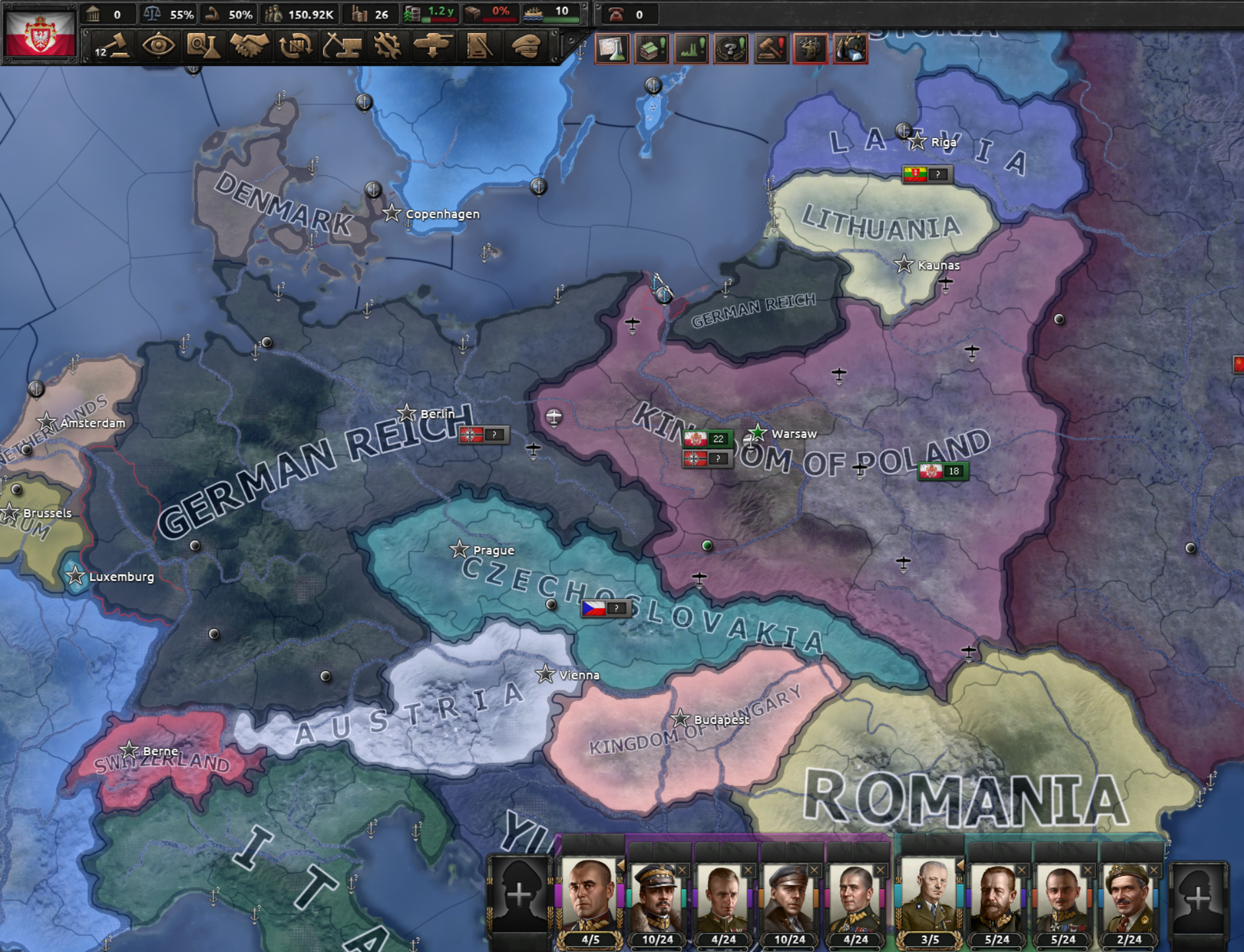
With the Regency Council assembled, Poland will be able to choose from one of three claimants, each with their own complete political path. There were countless claimants and candidates for the Polish throne so it was impossible for me to make content for them all, so we have: The Hohenzollern, The Commonwealth Claimant, and the Cossack-King to choose from!
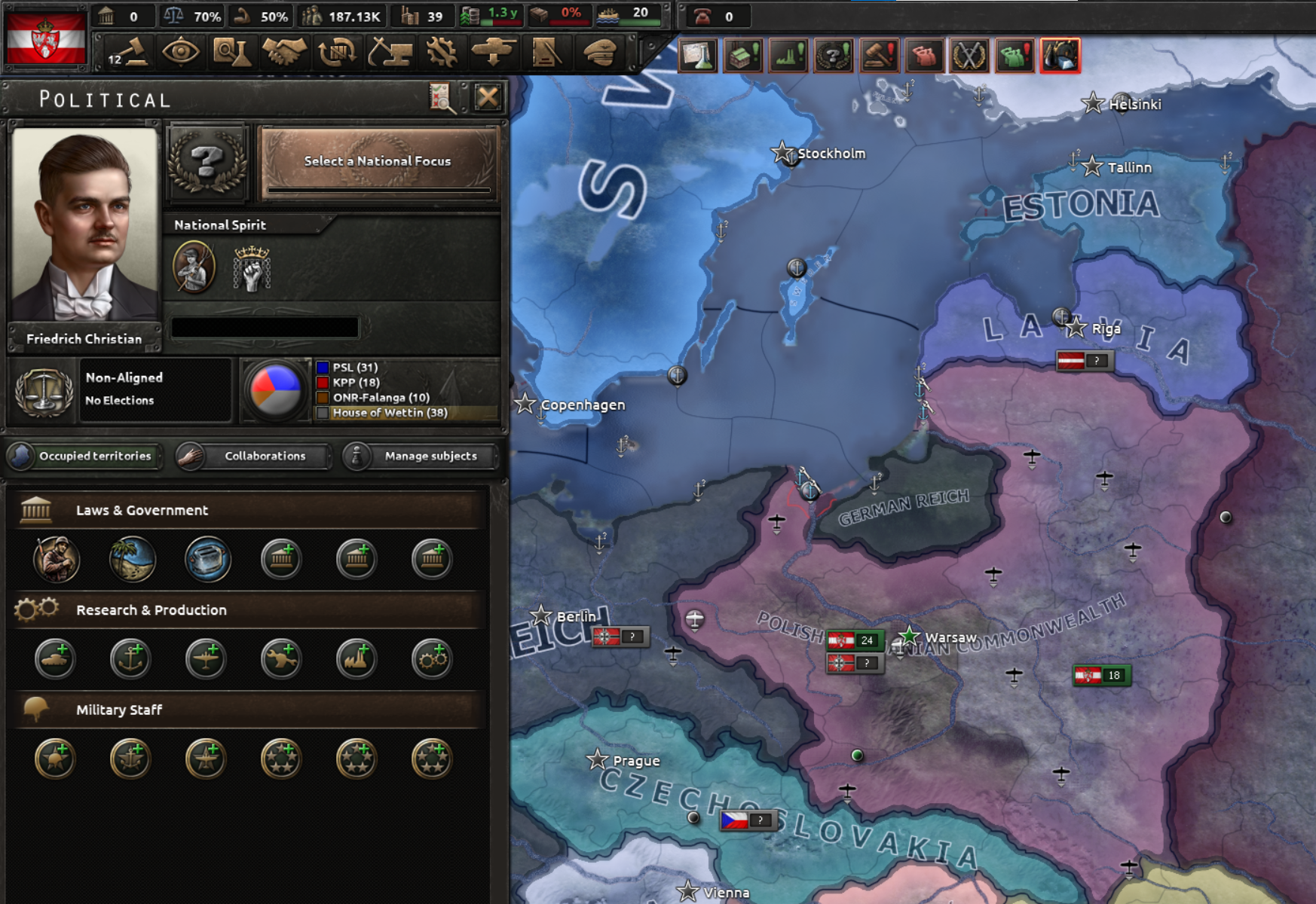
The Commonwealth Claimant is perhaps the most obvious: Poland’s preferred candidate for King was Friedrich Christian. Christian was preferred due to Poland’s long connection with the houses of Saxony, and with a claimant so supported by the Poles, you are able to claim the throne of Lithuania without the need for warfare.
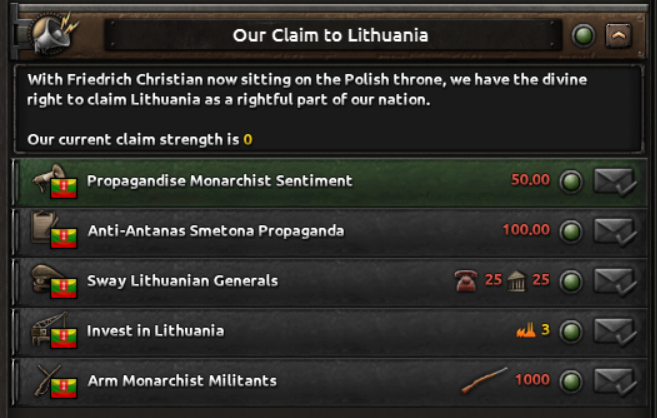
Through decisions, Poland can trend monarchist sentiment up in Lithuania, and when it reaches high enough, they may either enter a civil war or peacefully take over the government. When either case has happened, Poland can annex the Lithuanian Kingdom and begin integrating the industries of their two nations and preparing for war with the Soviets and Germans: restoring the old borders of the Commonwealth and then some!
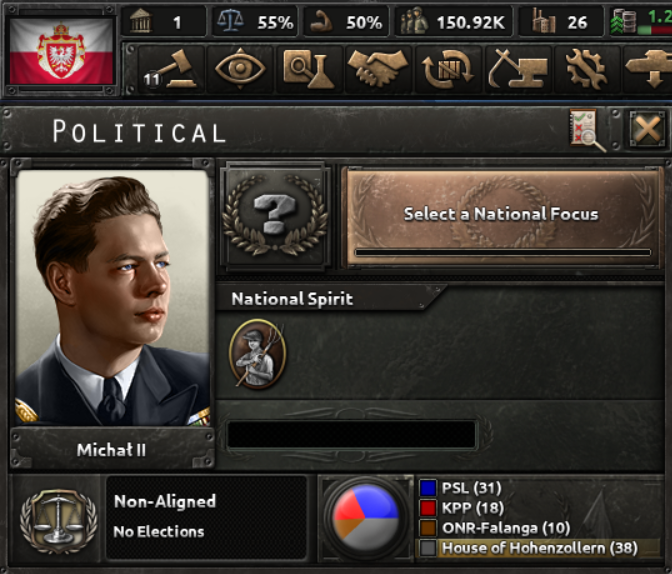
Poland and Romania enjoyed close relations at the start of HoI’s timeframe, and with the throne of Poland empty, Poland may throw herself into the complex mess of Romanian politics by electing a Romanian King.
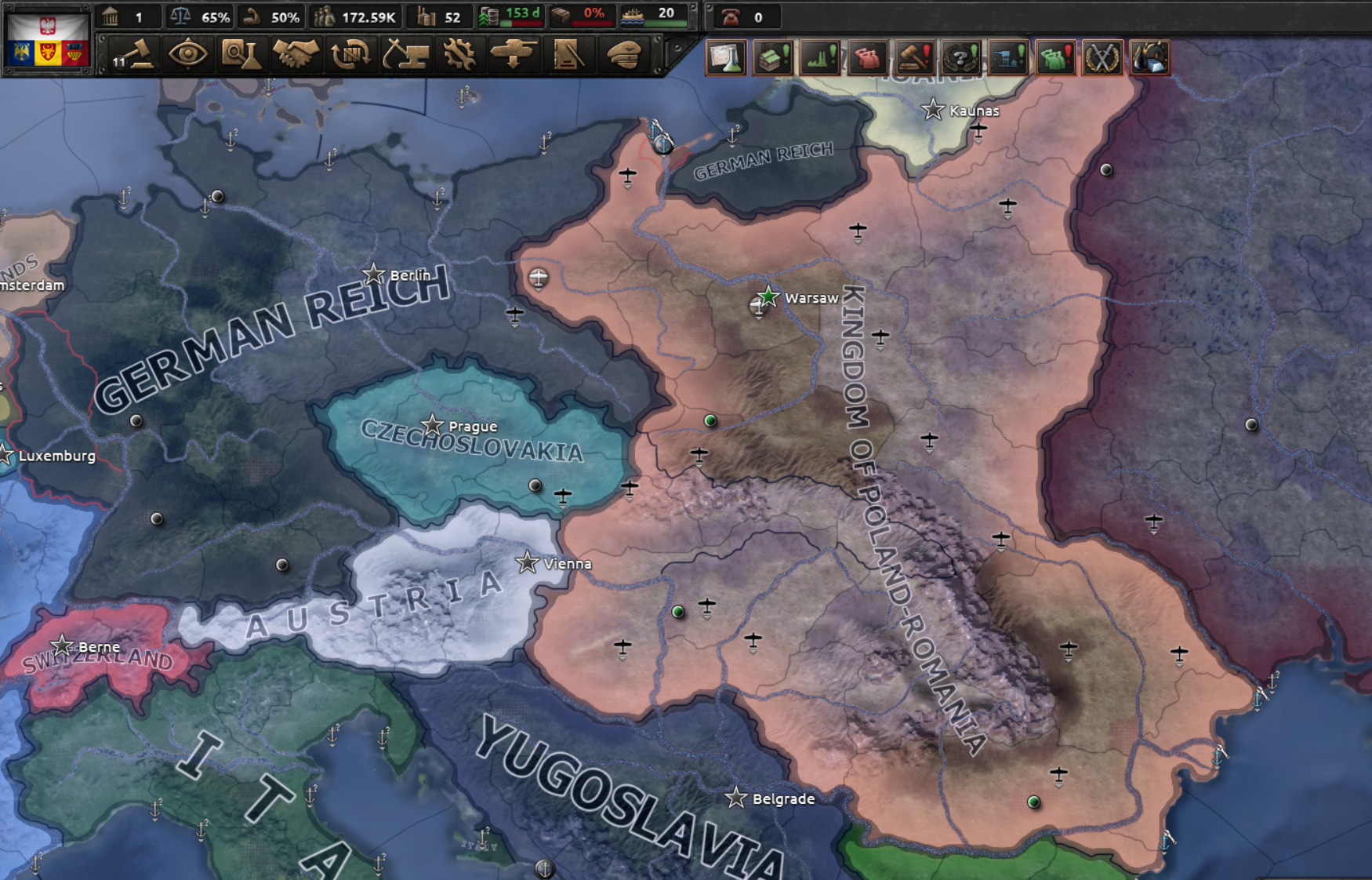
With King Michael on the throne of Poland, the Kingdoms will be able to unite under the right circumstances. Either by Polish interference or by Romania completing “King Michael’s Coup”, Romania and Poland will be united, bringing their armies together and becoming a powerful wall between the Axis and the Comintern.
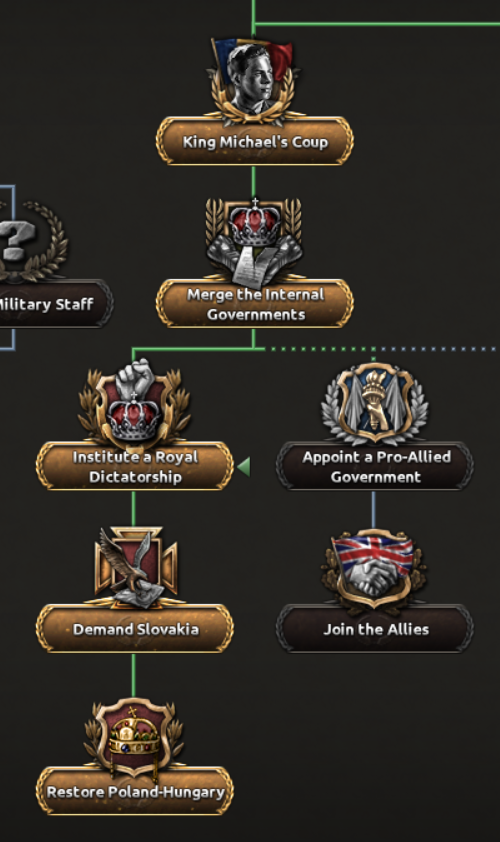
This Intermarium nation may seek Balkan Domination and a restoration of Poland-Hungary, or (as with the Commonwealth) it may seek to maintain its alignment with the Allies.
Finally, we have the most unlikely candidate for the throne: Pavel Bermondt-Avalov.
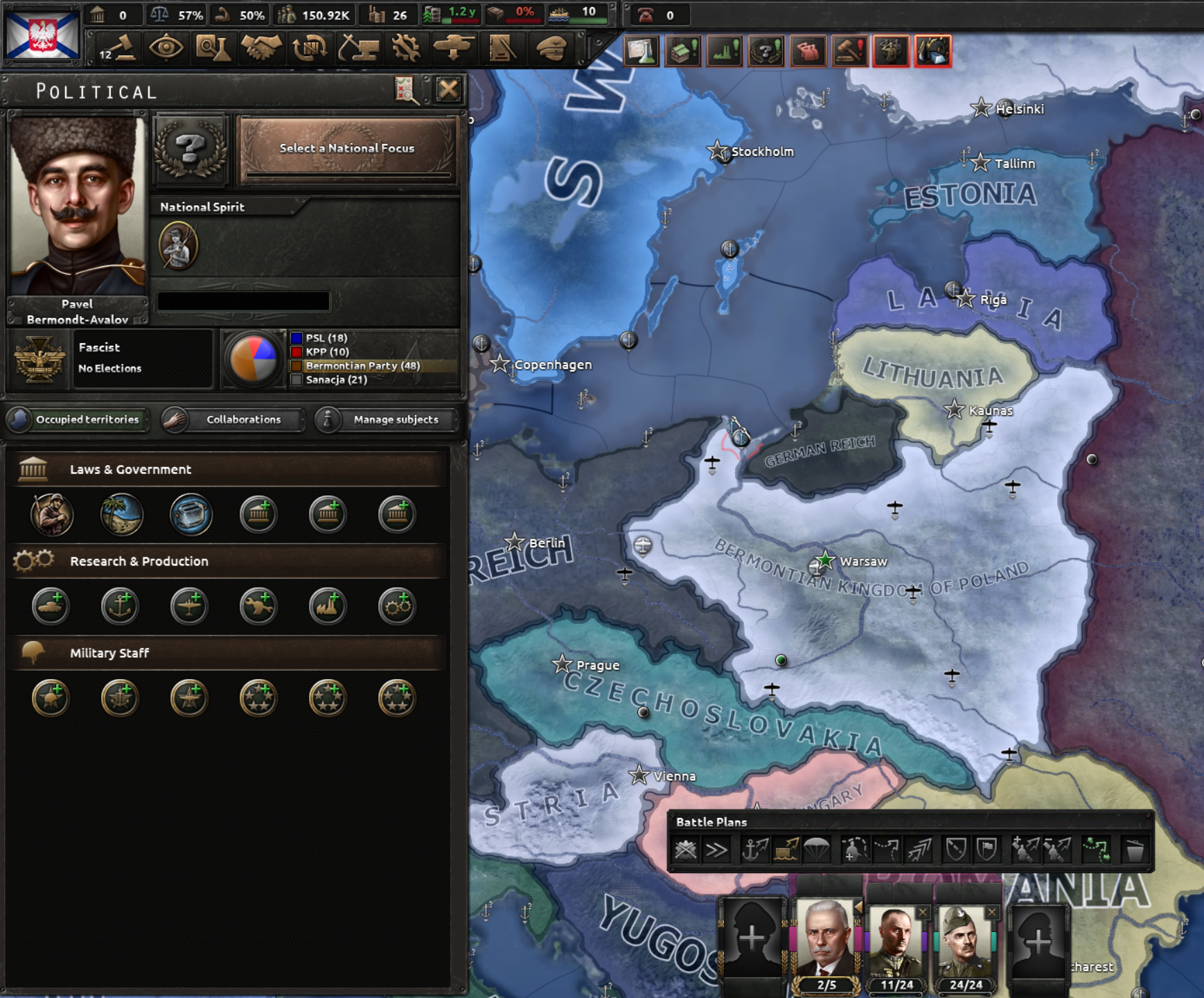
A warlord, a cossack, and a Georgian Prince, Pavel led an interesting life of conquest and warfare. In the interwar period, Pavel and his Bermontian host invaded Lithuania and Latvia for reasons historians are still unsure of, but his ambition for Baltic domination makes him the ideal candidate for militarizing the Polish state into action and dominating the Baltics and Czechoslovakia.

When done conquering the Baltics, Pavel will be able to either turn his militarized Polish Kingdom against the Germans and asser Poland’s claims in Silesia and Pomerania or, as a National Socialist, Pavel may wish to seek alignment with the Germans, which brings us on to the fascist branch.
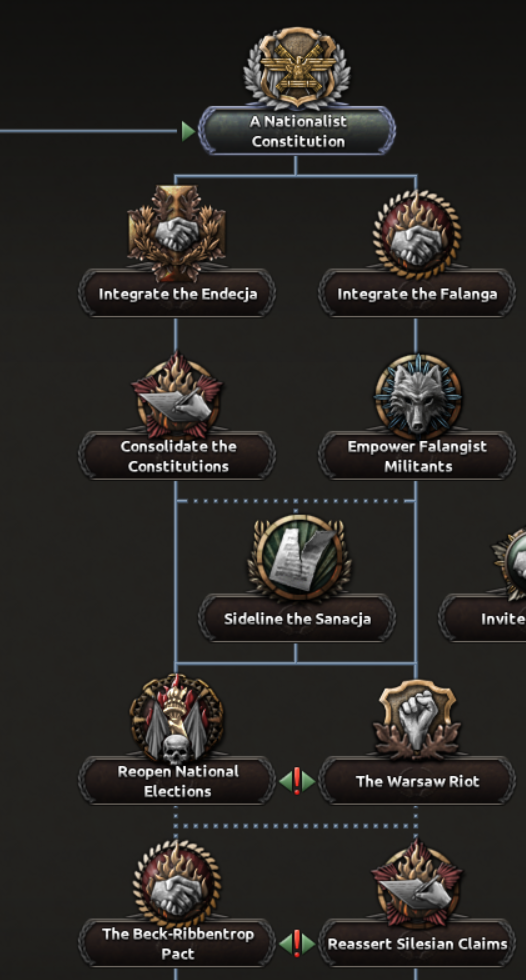
Poland was home to a multitude of fascist and nationalist movements: the most notable of which are the Endecja (or National Democracy) and the Falanga. The Sanation historically made dealings with both of these groups, and as such, if you want either Endecja or Falanga to take control, you must collaborate with the Sanation until you are able to supplant them.
When either Endecja or Falanga have taken over the government, they will have a choice to either stand firm with Polish nationalism or make concessions to the Germans and attempt to seek an alliance.
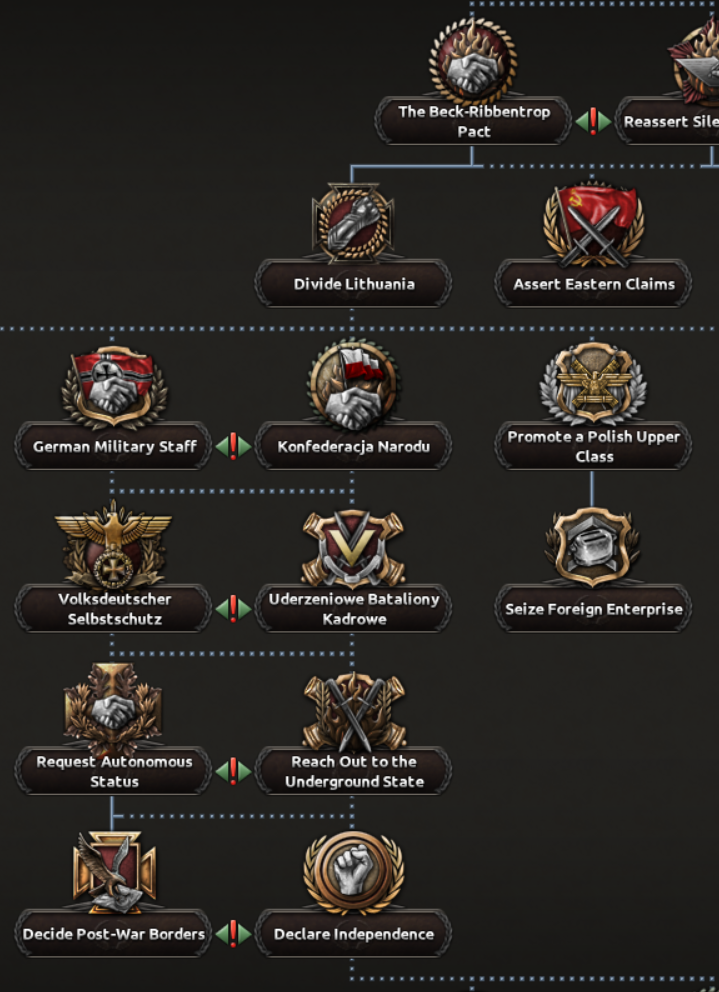
Aligning with the Germans will not place you on equal grounds, and it is not as easy as it once was. Germany will refuse to ally with Poland unless Danzig and Poznan are surrendered and Poland becomes a German subject. Unlike Czechoslovakia though, the Poles will be able to break their shackles and tear the Reich apart from within.
With either Pavel, Piasecki, or Dmowski in control, Poland will be presented with a ladder of focuses enabling them to either gain powerful bonuses from the Germans or plot with the Underground State to overthrow their current masters.
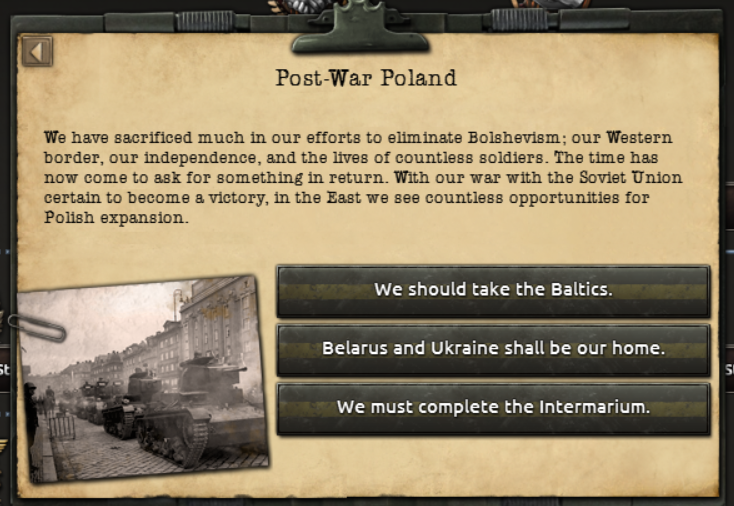
Going for independence will allow Poland to switch sides and stab Germany in the back, whereas remaining loyal will enable Poland to gain some cores in the USSR in a sort-of reverse Yalta Conference.
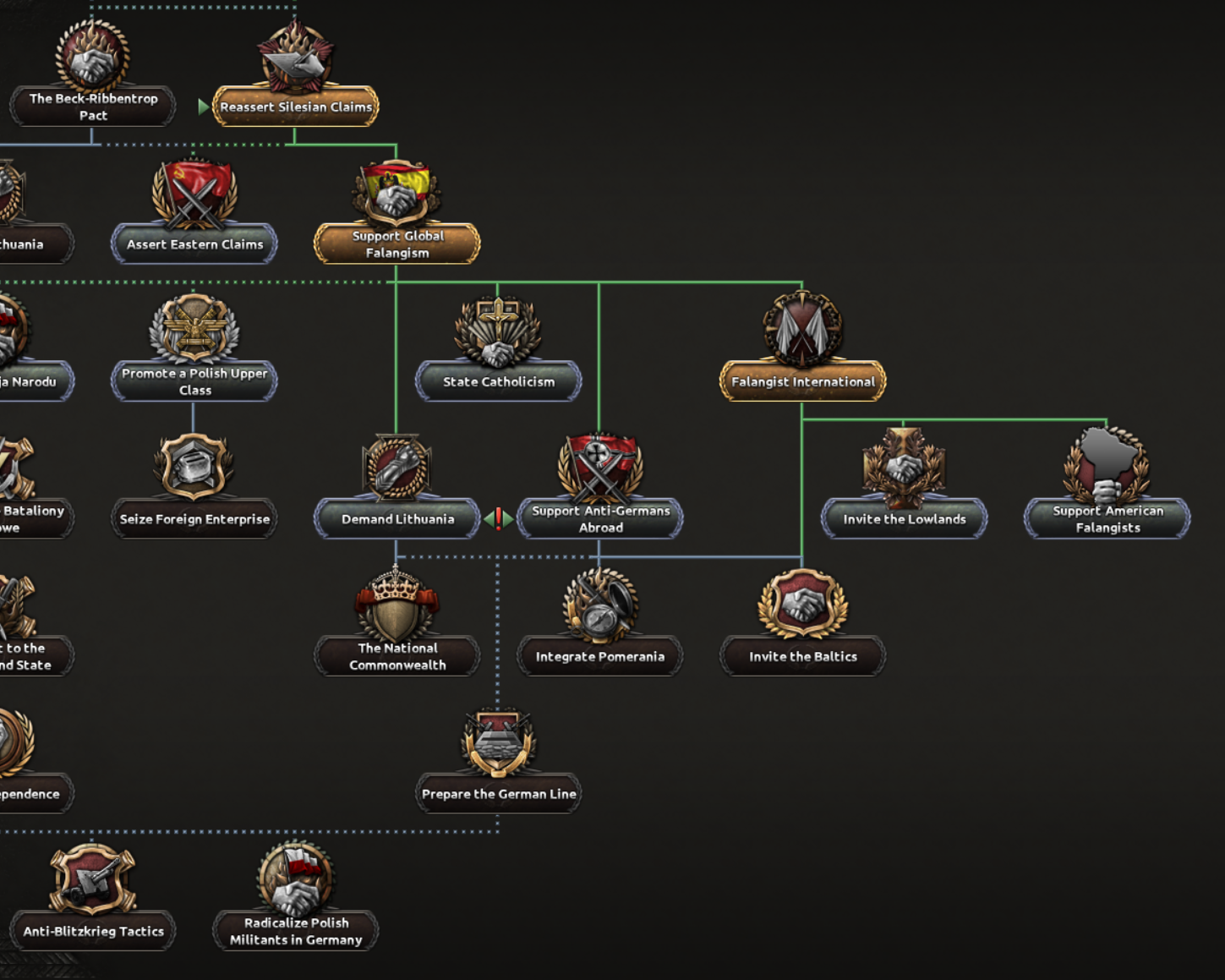
However, a Falanga or Endecja that does not bow to the Germans will be able to lean into the Polish Catholic identity and form the Falangist International: a faction devoted to the perseverance of Falangist ideals.
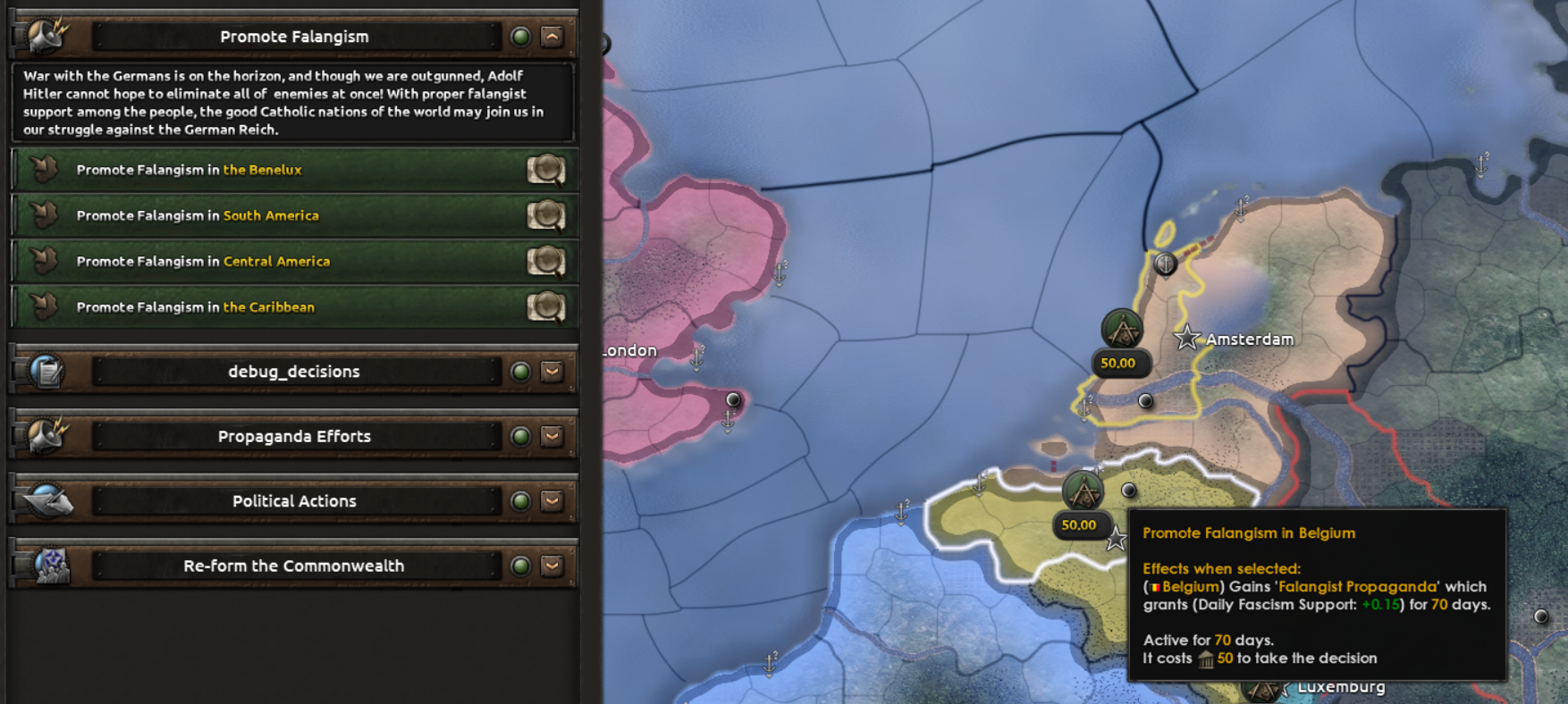
Once the Spanish Civil War is done with, if either the Carlists, Nationalists, or Falangists come out on top, Poland will be able to bring them into their own faction and from there, they will be able to expand that faction to other nations where Falangism was present such as: Mexico, the Netherlands, and much of Latin America.
They will have access to decisions to boost fascism in those nations, and with a certain percentage achieved, those nations will be invited to join the Falangist International. These focuses invite multiple nations at once, so the faction can grow very large very quickly.

Similar to the Sanation path, the Polish fascists must choose between allying with Lithuania or attempting to reclaim the legacy of the Commonwealth, but choose wisely. Without allying Lithuania, this Poland will be unable to progress down the Between the Seas path, severely limiting their faction’s ability to expand.
That’s about it for the political paths, so I’ll wrap this one up by talking about a feature we haven’t touched in quite some time: Governments in Exile.
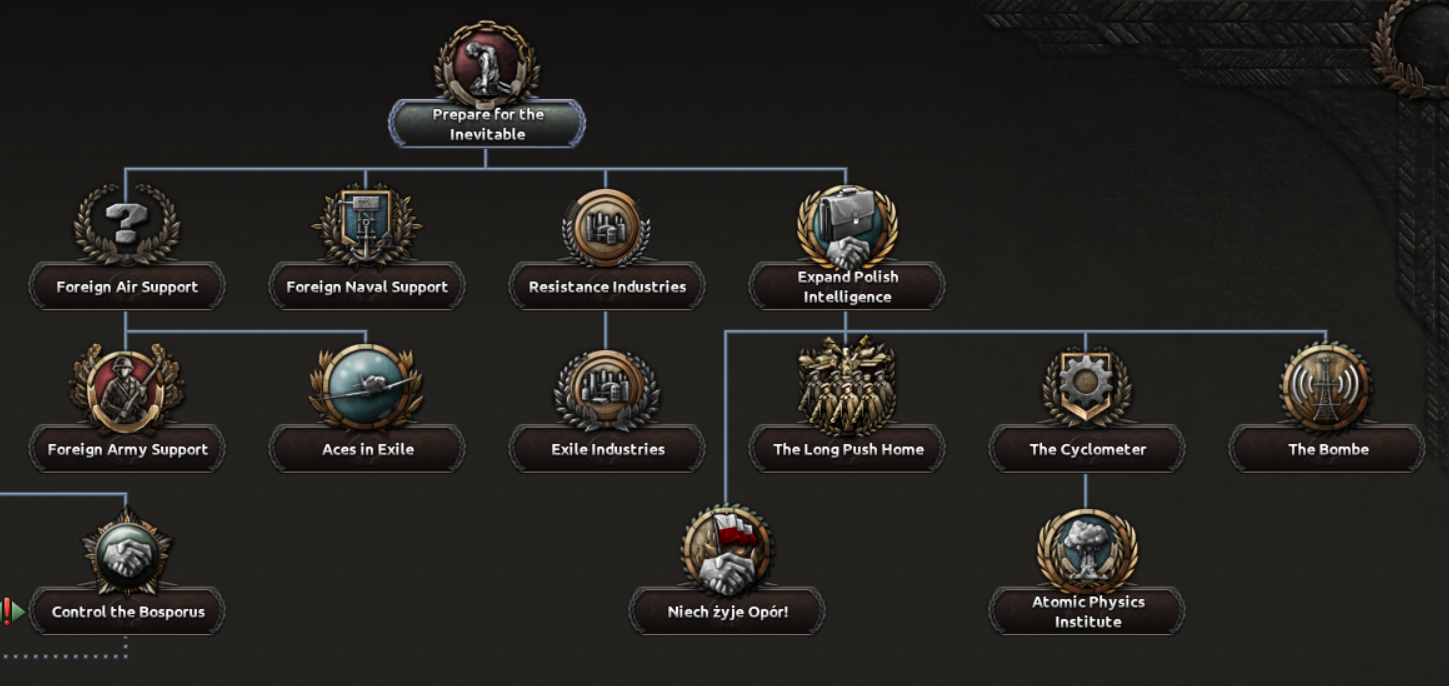
Unlike France and the Netherlands, Poland does not by default have a vast colonial empire to which they may retreat when things fall apart back home, so Poland will be entirely reliant on the support and goodwill of their allies and the network of resistance fighters in the Polish Underground State.

In exile, the Polish government went through a number of Prime Ministers and Presidents before landing on something the Allies were satisfied with. If Poland is following a historical route and is exiled in a Democratic nation like Britain or France, they will demand the resignation of the Sanation leaders, and from there, Poland may pick from one of three new leaders, each with a unique personality enabling them to gain manpower while in exile.
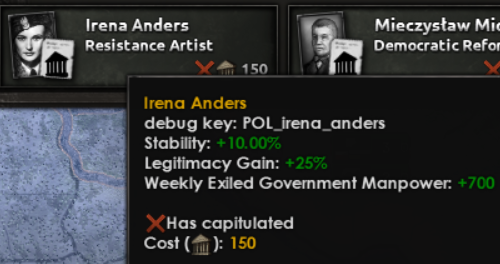
On top of that, they will gain access to Irena Anders as a political adviser, granting more legitimacy, stability, and exiled manpower.
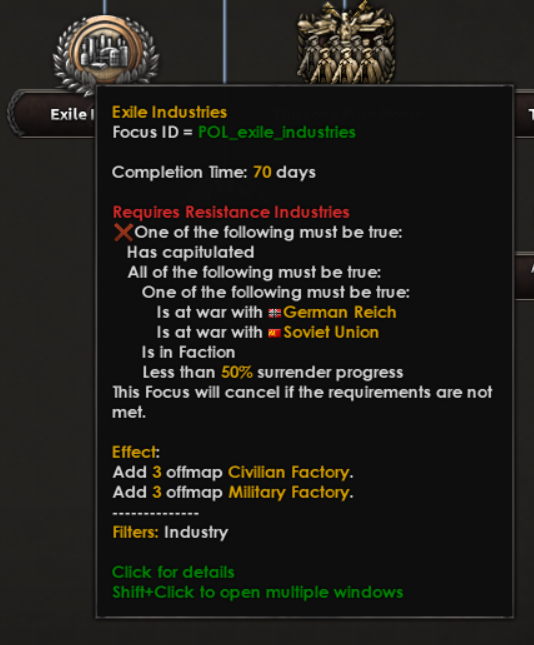
In the exile focus tree, Poland can gain a number of offmap factories and dockyards, and bonuses to their ace generation and an increase in special forces cap. Poland will never muster a major army while exiled, but with these bonuses, Poland will still be able to keep fighting on with a small but specialised force.
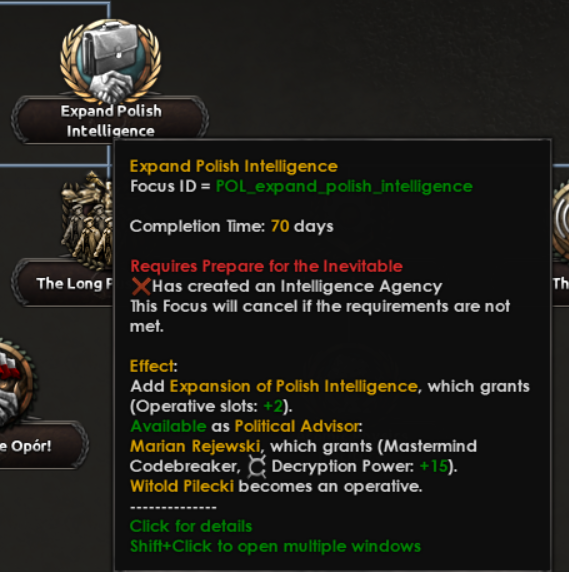
Owners of La Resistance will gain access to a slew of agency bonuses including an increase to their spy capacity, free agency upgrades via focus, and the new Warsaw Uprising operation.
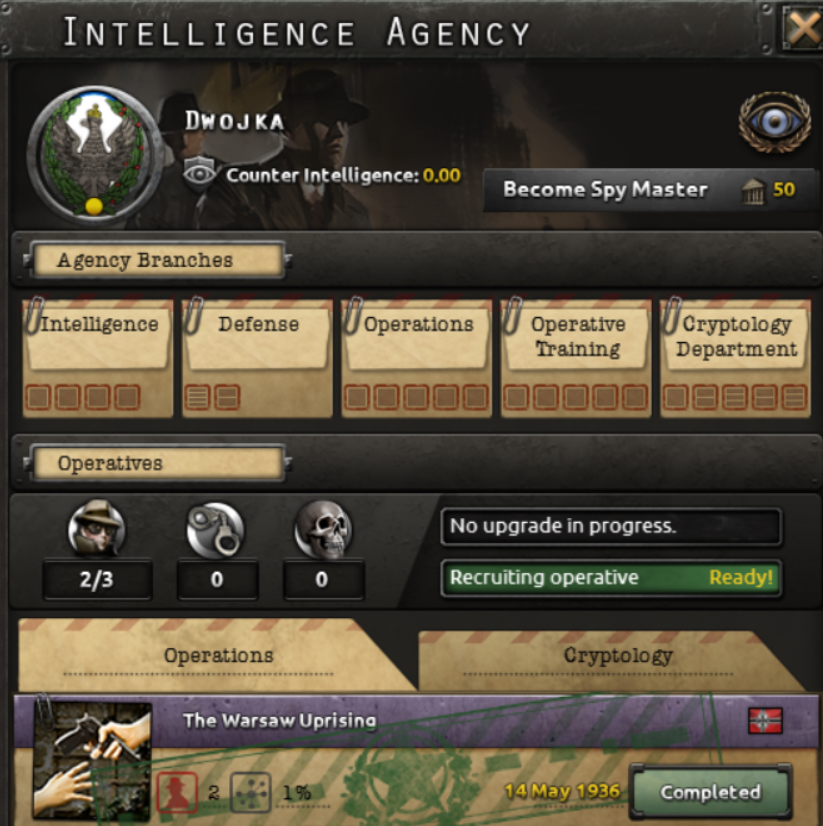
Completing the operation will trigger the Warsaw Uprising sooner than the game mechanics usually allow. With 50% resistance or higher in Polish states, the uprising can be started, but time this well as you can only complete this operation once. A well-timed uprising can shatter the German army and leave them short on supply as they attempt Operation Barbarossa.
Poland was also vital to assisting in decrypting the enigma machine, so they also gain access to the Mastermind Codebreaker advisor: Marian Rejewski.
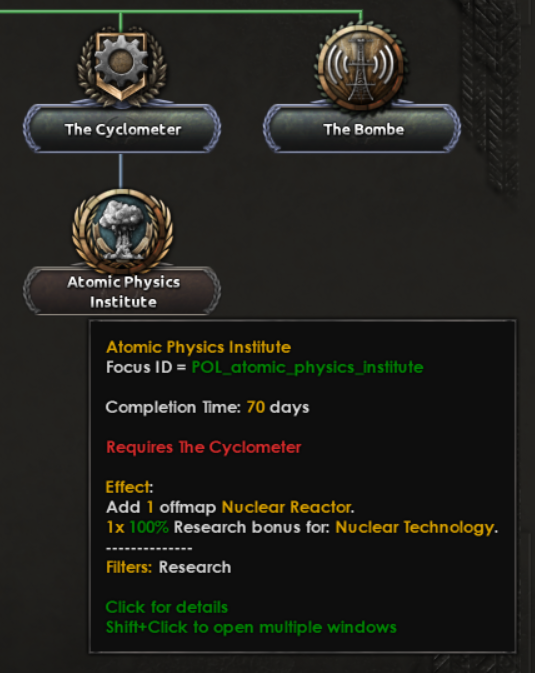
The old Cyclometer and Bombe focuses have been moved into the espionage branch, but I noted that without any territory left, a bonus to atomic research was fairly useless to Poland. So, when the Atomic Research focus is done, Poland gains an offmap nuclear reactor that will give roughly one nuke per year... Try not to think too hard about it.
There were a lot of interesting alternate-history scenarios for Poland to explore and new possibilities came up during my research and implementation. Though I didn’t represent everything in game (such as the proposed Japan-Polish alliance), Poland is a treasure-trove of alternate history scenarios if only you can find a way to survive.
That’s all for this week, and that wraps up the two week Poland extravaganza!


































